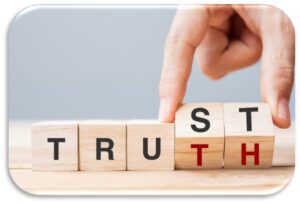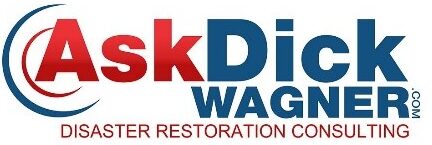Building genuine relationships with prospects and clients requires understanding their unique needs and expectations while maintaining professionalism, empathy, and adaptability. The ability to connect on a personal level is not just a skill; it is a competitive advantage that advances trust, loyalty, and long-term partnerships.
One of the most essential interpersonal skills in sales is active listening. This goes beyond simply hearing what someone says; it involves fully engaging with their words, tone, and body language to grasp their true needs and concerns. In disaster restoration, clients often come to you during stressful times. By listening attentively, you not only demonstrate empathy but also position yourself as a problem solver who truly understands their situation. Check out his podcast on Spotify!
For instance, when a plumber refers a homeowner to your company after a pipe burst, acknowledging their distress and asking clarifying questions about their specific needs helps you adapt your services to provide the best possible solution. Implementing active listening involves maintaining eye contact, nodding to show understanding, and paraphrasing their concerns to confirm you’ve captured their perspective.
As a route marketer, empathy is another crucial skill in building rapport with clients and referral partners. Understanding what the client expectations are, and what their customer is going through allows you to communicate with compassion and provide reassurance. In disaster restoration, situations often involve loss, uncertainty, and frustration.
 For example, when an insurance agent refers a client who has suffered significant property damage, acknowledging the emotional toll and offering a clear path to restoration shows you care about more than just the transaction. It’s more than empathy to the actual customer, it means you must have empathy for and with the referring client. Implementing empathy requires genuine concern, a calm demeanor, and thoughtful responses that validate both the clients’ and the customers’ feelings while offering practical solutions.
For example, when an insurance agent refers a client who has suffered significant property damage, acknowledging the emotional toll and offering a clear path to restoration shows you care about more than just the transaction. It’s more than empathy to the actual customer, it means you must have empathy for and with the referring client. Implementing empathy requires genuine concern, a calm demeanor, and thoughtful responses that validate both the clients’ and the customers’ feelings while offering practical solutions.
Adaptability is also vital when dealing with diverse prospects and clients, as expectations and communication styles vary widely. A carpet cleaner may prefer concise, factual communication, while a homeowner may value detailed explanations and emotional reassurance. Flexibility in your approach ensures that you connect with individuals on their terms, which enhances your effectiveness as a marketer or salesperson.
For example, when presenting your services to a corporate property manager versus a residential client, modifying your pitch to highlight relevant benefits for each audience demonstrates your ability to adapt. Implementing adaptability involves observing and mirroring the communication style and preferences of the person you are engaging with, as well as being open to feedback and adjusting your approach as needed.
Confidence is another interpersonal skill that plays a significant role in establishing credibility. Clients and referral partners need to trust that you can deliver on your promises. Confidence, however, must be balanced with humility to avoid coming across as arrogant. This is particularly important in disaster restoration, where clear communication and reassurance are key to gaining trust.
For example, when discussing your company’s capabilities with a property owner, speaking with assurance about your qualifications and past successes instills confidence in your ability to manage complex projects. Implementing confidence involves thorough preparation, such as familiarizing yourself with your company’s services, industry standards, and success stories, and presenting this knowledge with poise. It’s my opinion that every salesperson and route marketer in the restoration industry should take IICRC classes and other industry training to have a better understanding of what is involved. And, yes, take the exam at the end.
Building trust and rapport also relies heavily on integrity and honesty. Transparency is non-negotiable, especially in industries where clients are often unfamiliar with the technical aspects of the services provided. If a client has misconceptions or unrealistic expectations, it is your responsibility to provide accurate information and set clear boundaries.
For example, when discussing timelines for water damage restoration, being upfront about potential delays due to unforeseen  complications builds credibility and manages expectations. Implementing honesty means being straightforward, delivering on commitments, and owning up to mistakes when they occur. Don’t give them rose colored glasses or gloss over the reality.
complications builds credibility and manages expectations. Implementing honesty means being straightforward, delivering on commitments, and owning up to mistakes when they occur. Don’t give them rose colored glasses or gloss over the reality.
Finally, a positive attitude can make a significant difference in how you are perceived by prospects and clients. Enthusiasm and a solution-oriented mindset create an atmosphere of optimism and cooperation, even in challenging circumstances. If you can’t generate a positive attitude most of the time, you may be in the wrong position.
For example, when collaborating with a homeowner overwhelmed by the aftermath of a fire, maintaining a can-do attitude reassures them that the situation is manageable. Implementing a positive outlook involves self-awareness, emotional regulation, and the ability to find constructive perspectives in difficult situations. This is where emotional Intelligence (EI) comes in. I recommend you read the book: “Who Moved My Cheese” by Dr Spencer Johnson. It makes it very simple to understand what emotional intelligence is all about.
Incorporating these interpersonal skills into your sales or route marketing strategy requires practice, reflection, and a genuine desire to connect with others. Regular training sessions, role-playing scenarios, and feedback from peers can help hone these abilities. By committing to active listening, empathy, adaptability, confidence, integrity, and positivity, you can create meaningful relationships with clients and referral partners, driving success in the competitive field of disaster restoration.
 Nationally recognized coach, consultant, trainer, and speaker
Nationally recognized coach, consultant, trainer, and speaker
Creator of the renowned PREP™ pre-disaster program
Co-owner of The CREST Network, LLC
Copyright© 2024 AskDickWagner, LLC All Rights Reserved
No Part Of This Document May Be Reproduced In Any Form Without Written Permission

